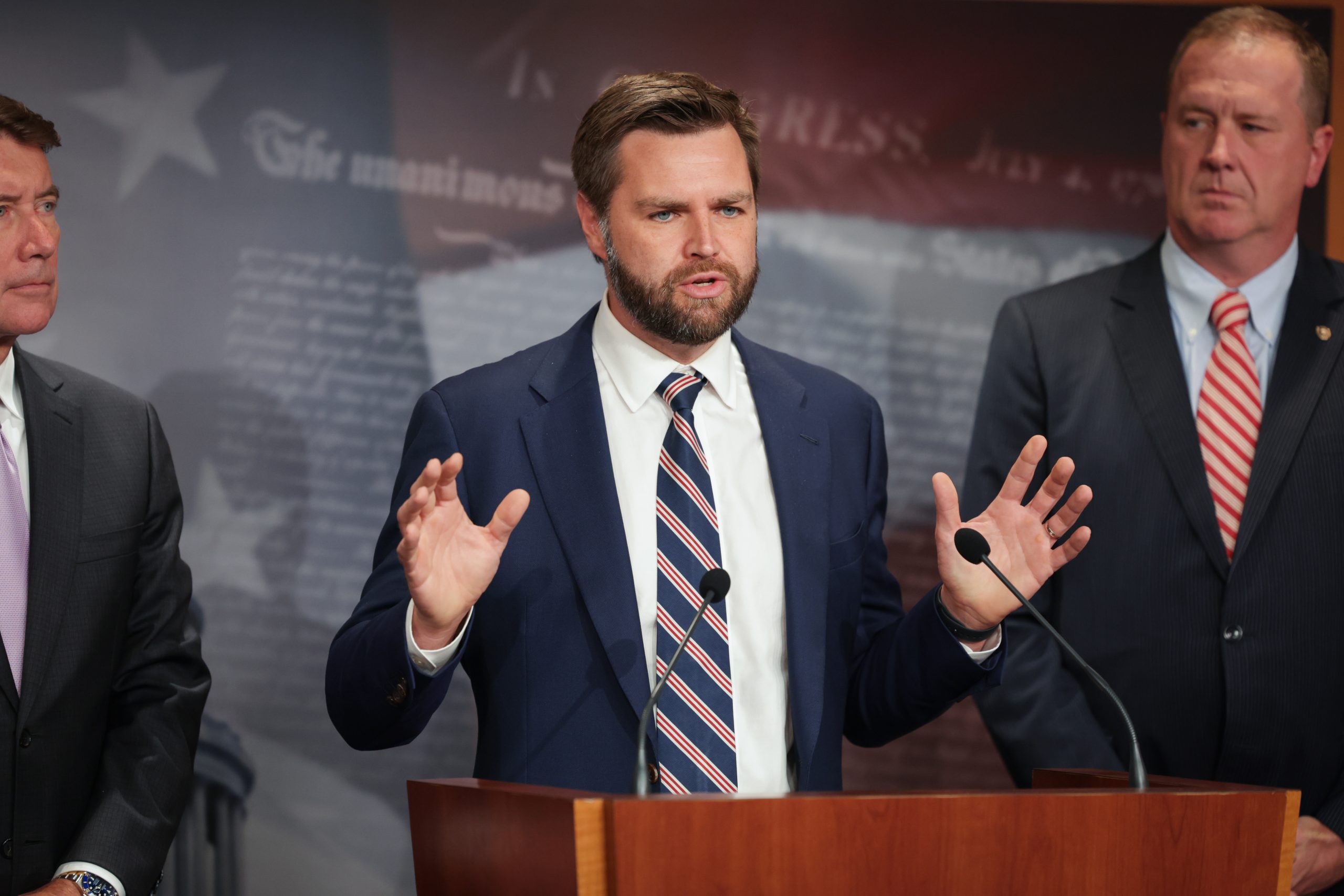“We ought to view the money Europe hasn’t spent on defence for what it really is: an implied tax on the American people to allow for the security of Europe … The question each European nation needs to ask itself is this: are you prepared to defend yourself? And the question the US must ask is: if our European allies can’t even defend themselves, are they allies, or clients?”
An Op-Ed Published In The Financial Times
By Senator JD Vance | February 19, 2024
The United States has provided a blanket of security to Europe for far too long. In the aftermath of the cold war, European nations made deep and lasting cuts to their defence budgets. Estimates suggest the continent would have spent an additional $8.6tn on defence over 30 years had they maintained cold war levels of military expenditure. As the American defence budget nears $1tn per year, we ought to view the money Europe hasn’t spent on defence for what it really is: an implied tax on the American people to allow for the security of Europe.
Nothing in recent memory demonstrates this more clearly than the war in Ukraine. There is frankly no good reason that aid from the US should be needed. Europe is made up of many great nations with productive economies. They ought to have the capacity to handle the conflict, but over decades they have become far too weak. America has been asked to fill the void at tremendous expense to its own citizens.
Behind the price tag, this conflict has revealed the shocking weakness of the defence industrial base on both sides of the Atlantic. In Europe and America, fragmented defence industries make limited quantities of the most advanced weapons on Earth, but struggle to produce heavy weaponry at the speed and scale needed to win a major conflict. For all the talk about who spends the most on defence by percentage of gross domestic product, Russia currently makes more than twice the amount of artillery shells each month than Europe and the US combined.
Defence spending and defence readiness are two different things. For example, Germany spends considerably more than France on defence each year, with little to show for it. The French army includes six highly capable combined-arms brigades ready to deploy and perform combat missions, but the Bundeswehr can barely scrape together a single combat-ready brigade.
The question each European nation needs to ask itself is this: are you prepared to defend yourself? And the question the US must ask is: if our European allies can’t even defend themselves, are they allies, or clients?
These issues go beyond budgetary gimmicks and trilateral summit attendance. They demand tangible military capacity and industrial power. London is the banking centre of Europe, and perhaps the world. But wars are not fought with dollars, pounds and financial derivatives, they are fought with bullets.
Germany is the most important economy in Europe, but it relies on imported energy and borrowed military strength. US leaders across the spectrum support Europe and see the value of generations-old alliances. But as we watch European power atrophy under an American protectorate, it is reasonable to ask whether our support has made it easier for Europe to ignore its own security.
Which brings us to Ukraine. In the press, the burden-sharing debate is often framed in monetary terms: who spends what, and how much should each nation spend? But this conceals the real resource constraint. Wars are won with men and materiel.
Starting with materiel: we don’t make enough of it. At current production rates, it will take years to rebuild military stockpiles after this war — even if we stop sending critical defence stocks today, as we most certainly should. A firm commitment to western re-industrialisation, to training skilled workers and rebuilding production capacity is needed.
Ukraine also needs more men. The average Ukrainian soldier is about 43 years old. Its former top general Valery Zaluzhny recently said he needed a mobilisation of fresh troops. Ukraine will only be able to continue at this rate for so long until western troops are asked to answer the call.
We owe it to our European partners to be honest: Americans want allies in Europe, not client states, and our generosity in Ukraine is coming to an end. Europeans should regard the conclusion of the war there as an imperative. They must keep rebuilding their industrial and military capabilities. And Europe should consider how exactly it is going to live with Russia when the war in Ukraine is over.
In the US, justifications for the war often depend on a contemporary domino theory: unless we stop Putin in Ukraine, he won’t stop there. But the time has come for Europe to stand on its own feet. That doesn’t mean it has to stand alone, but it must not continue to use America as a crutch.
For Background:
- In remarks to the Munich Security Conference over the weekend, Senator Vance delivered a “wake up call” to European nations regarding their contributions to NATO, the state of the defense industrial base in the West, and the need for the United States to shift its strategic focus to East Asia. Senator Vance also discussed how “Ukraine, Europe, and the United States have incentive to come to the table” to peacefully end the war in Ukraine.
###

